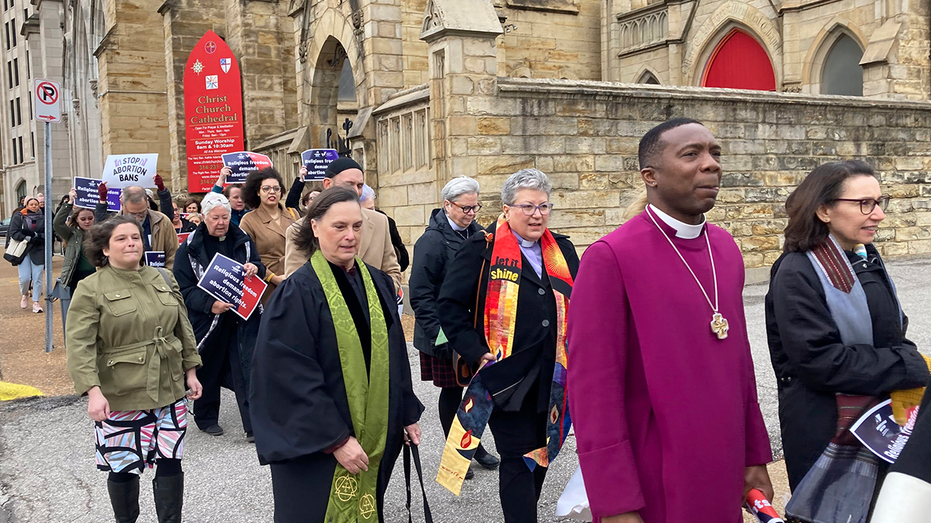A judge in Missouri ruled that state lawmakers who passed a bill restricting abortion access were not attempting to force their religious beliefs on everyone in the state, despite claims from religious leaders.
The case brought by more than a dozen Christian, Jewish and Unitarian Universalist leaders who support abortion access was rejected in Judge Jason Sengheiser’s ruling on Friday.
The religious leaders sought a permanent injunction last year to prevent Missouri from enforcing its abortion ban and a declaration that provisions of the law violate the state Constitution.
One section of the statute that was challenged reads: “In recognition that Almighty God is the author of life, that all men and women are ‘endowed by their Creator with certain unalienable Rights, that among those are Life.'”
MISSOURI’S ABORTION LAW FACES CHALLENGE IN COURT OVER CLAIMS OF RELIGIOUS INFLUENCE
Sengheiser wrote in his ruling that there is similar language in the preamble to the Missouri Constitution, which states that there is “profound reverence for the Supreme Ruler of the Universe.”
The other challenged provisions do not include any explicit religious language, the judge ruled.
“While the determination that life begins at conception may run counter to some religious beliefs, it is not itself necessarily a religious belief,” Sengheiser wrote. “As such, it does not prevent all men and women from worshipping Almighty God or not worshipping according to the dictates of their own consciences.”
The Americans United for Separation of Church & State and the National Women’s Law Center, who filed the lawsuit on behalf of the religious leaders, said in a joint statement that they were considering their legal options following the judge’s ruling.
“Missouri’s abortion ban is a direct attack on the separation of church and state, religious freedom and reproductive freedom,” the statement read.
Attorneys representing the state, however, argued that just because some supporters of the law oppose abortion for religious reasons does not mean that the law imposes their beliefs on other people in the state.
Sengheiser said that the state has historically attempted to restrict and criminalize abortion, pointing to statutes more than 100 years old.
“Essentially, the only thing that changed is that Roe was reversed, opening the door to this further regulation,” he said, referring to the U.S. Supreme Court overturning Roe v. Wade in 2022, which allowed states to make their own abortion laws.
Shortly after Roe v. Wade was overturned two years ago, then-Attorney General Eric Schmitt and Gov. Mike Parson, both Republicans, filed paperwork to immediately enact a 2019 law prohibiting abortions except in cases of medical emergency. That law included a provision that made it effective only if Roe v. Wade was overturned.
The law makes it a felony punishable by five to 15 years in prison to perform or induce an abortion, and doctors who violate the law could lose their medical licenses. Women who undergo abortions cannot be prosecuted under the law.
Missouri, which already had some of the more restrictive abortion laws in the U.S., had a significant decline in the number of abortions performed. Residents instead traveled to the neighboring states of Illinois and Kansas to undergo the procedure.
The Associated Press contributed to this report.
























